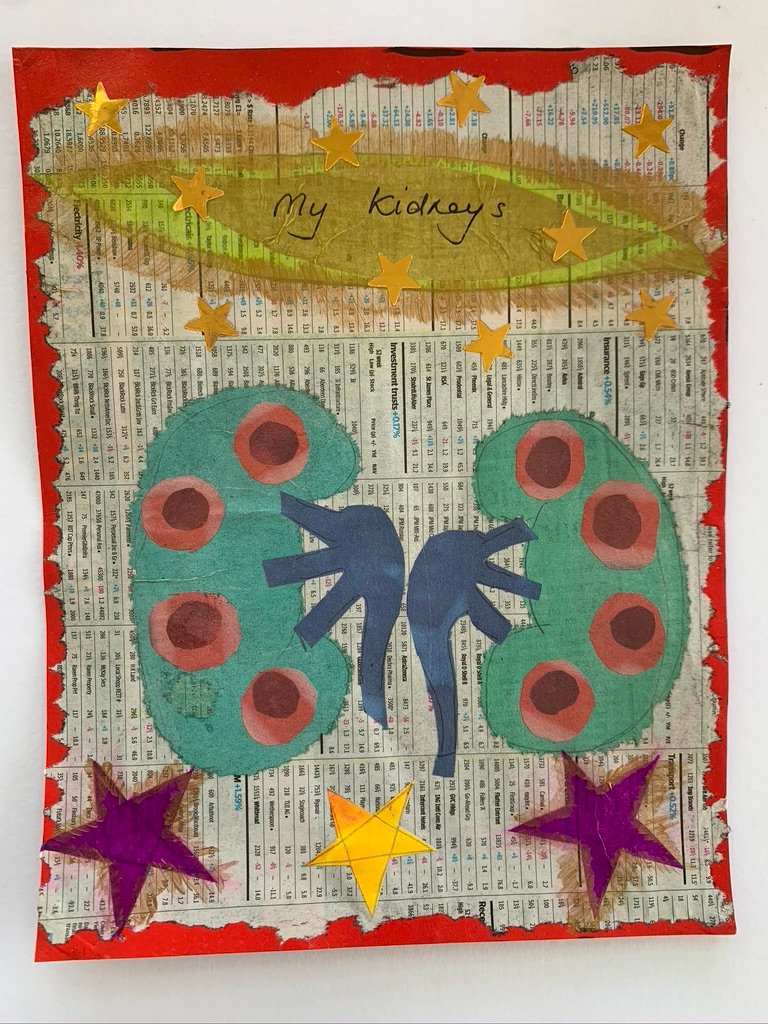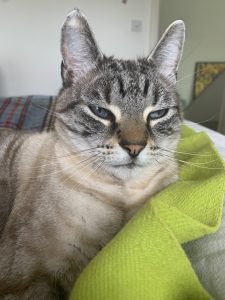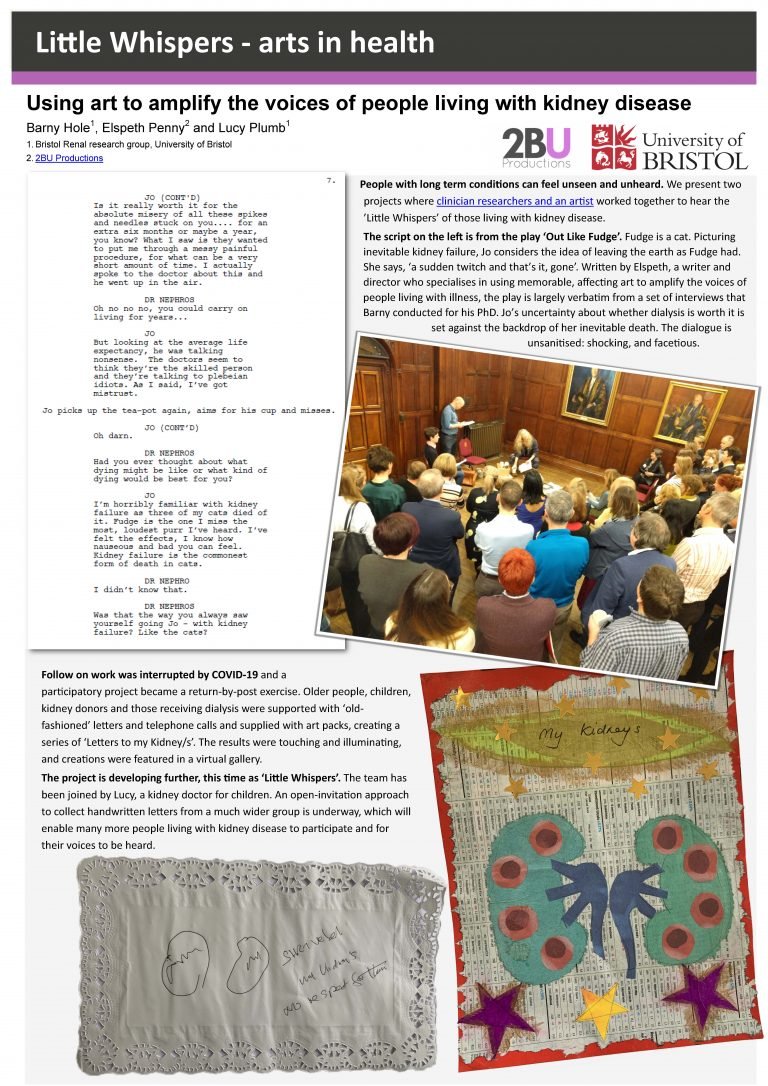Out Like Fudge: bringing research to life in Bristol and Aarhus, Denmark
A play to consider dilemmas about medical procedures from the point of view of a patient, written by Elspeth Penny

Before any further ado, Fudge is a cat and ‘Out Like Fudge’ is both the title of a short play, and a quote from a character in it called Jo.
The play, or vignette, is based on a real patient, with details altered for reasons of respect and confidentiality. This patient was someone who had multiple health issues including long term kidney disease and liked the idea of leaving the earth as quickly as her cat Fudge had. She says, ‘I thought, hey what if I kick off like Fudge did? It’s a sudden twitch and that’s it, gone.’
Much of the play is verbatim. It’s based on spoken interviews that Barny Hole, trainee specialist in kidney disease, dialysis and transplant medicine, had recorded and transcribed, as part of his PhD at University of Bristol.
Barny had heard of me on the grapevine: we had a long telephone call, then he commissioned me to do the work. We had several stimulating and joyful meetings where he helped me understand the importance of the transcribed interviews and his approach, whilst being clear that I was to have creative freedom in what I wrote. We agreed that humour was important for us, and that the humour might be dark. We wanted to stay true to the interviewees, whilst protecting their identities and fictionalise elements to make it into an easier story to follow. We decided that the best way forward was to create two ten minutes drama vignettes, as a starting point, and to potentially write more scenes at a later stage.
The work was first performed at a Patient and Public day, and then for a nephrology conference at the Wills Memorial building, Bristol in December 2019, funded by The Elizabeth Blackwell Institute. After the first performance, we had discussions with the patients and relatives of patients, which were poignant and helpful. We agreed on a few edits, shortening and tightening up the scripts.

Bringing research to life in Denmark
Jeanette Finderup, Klinisk Sygeplejespecialist & Ph.D. was in the audience at the Wills Memorial building. Jeanette liked Out Like Fudge and asked whether she could translate and use it for her own conference in Denmark.
Being invited to Denmark to introduce a play I’ve written and which is translated and performed as a film, and in Danish is cool. I’m excited. The play will be on the 5th November 2021 and its Danish name is: Ikke mere udenomsnak. Jeanette says: “We were not able to make a direct translation, but as the Danish title indicates, now we do not talk around the subject anymore.”
I will do a short introduction of the play and Barny will present a lecture for one hour with the title: Hvad må det koste at leve længere for en patient i dialyse? “The title says something like: How much will a patient in dialysis pay to live longer” Janette told us. We won’t understand any of the language in the play, but hope to pick up other elements, such as the energy of the delivery and the reaction of the audience.
Why translate research into drama?
Out Like Fudge is an example of the strength of translating research into drama. Academics have an ongoing challenge about how to present research material. Sometimes it can come across as being quite dry, even when the subject matter would be of great interest to a wide variety of people. Writing and performing fictional scripts, based on research, helps us take ideas and complex concepts to a public audience.
Barny Hole had had a hunch that drama might be a good approach to help with public engagement around his PhD subject, and bring his research to life.
Professor Justine Schneider at University of Nottingham wrote of a different play that I have written, called Silva Lining’s Care Plan, and which is based on her research: “I find that drama continues to convey aspects of our research better than any other medium”. This play is now being directed and produced as a podcast, and so has a good chance of reaching an audience that might not usually see the research, nor make it to the theatre.
Using drama to illustrate research is important to me because through this drama, or story in action, an audience is able to witness lived experience. Witnessing lived experience helps us understand how it might be to be given a diagnosis, presented with treatment options (or not presented at all with options as is sometimes the case) and other subtleties of communications with clinicians and medical teams. Through the dramatic presentation of this lived experience, the audience can consider, debate and discuss what kind of an approach might be better for different kinds of people. It’s a win-win, benefiting clinicians, the NHS and patients.
The play poses more questions than it answers, as all good drama should, in my opinion. Jo in Out Like Fudge is a free spirit. She’s not been able to look after herself lately so she smells and she’s got her other eccentricities. I hope the audience will ask – should her long standing need to move about unhindered trump any entrapment she must live with when undergoing a cycle of medical treatment? What will she gain from this treatment? Is any extended life worth it to her? How can a clinician find out the right thing to offer her, and how to present it? Jo says: ‘I’m horribly familiar with kidney failure as three of my cats died of it.’ She says, ‘Fudge is the one I miss the most, loudest purr I’ve heard. I’ve felt the effects, I know how nauseous and bad you can feel. Kidney failure is the commonest form of death in cats you know”.
To find out about other work coming from my lively collaboration with Barny Hole, see Bring Research To Life
All enquiries to elspeth@2buproductions.co.uk


